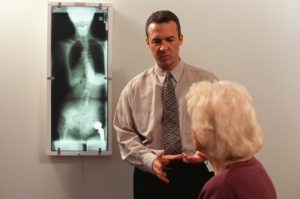
Developing a disability in the old age as a result of broken bones can leave us bed-ridden, which has been linked to aggravation of the existing health conditions or even contributing to the development of new problems. Old-age disability is also associated with a loss of autonomy as we are no longer able to do things for ourselves and have to rely on the help of others. Breaking a bone is even linked to mental health issues, as a bed-ridden patient is more likely to become depressed or anxious.
Understanding the way our bones work and the factors that contribute to poor bone health can help us better protect ourselves against fractures and breaks in order to maintain overall good health.
8 facts about your bone health
- Your bones are made up of periosteum (a dense outer membrane responsible for bone repair), trabecular bone which is a spongy tissue commonly filled with marrow and blood vessels, bone marrow which is the delicate tissue that fills the inner bone cavities, and cortical bone (made up of collagen and calcium) which protects fragile tissue inside the bone.
- You are always making new bone, but the rate at which you make this new bone begins to slow down as you age. Until menopause, women retain the bulk of their bone mass, but once menopause kicks in, the drop in estrogen results in bone being used up faster than it is being built. This is why osteoporosis is most commonly seen among postmenopausal women.
- Although some doctors refer menopausal women for bone scans, this isn’t really recommended. Uncovering low bone density can result in prescribing medications, which can yield serious and unwanted side effects. Women who should get screened prior to the recommended age of 65 are those who have a family history of osteoporosis, who have developed certain fractures, and who are taking drugs known to thin bones such as steroids.
- Even though calcium can be obtained through dietary means, many women over the age of 50 may still require supplementation. Prior to embarking on bone health supplements, always speak to your doctor about your specific needs.
- Research has found that being overweight can negatively impact bone health. More specifically, if your fat is concentrated around your mid-section, you are more likely to have lower bone density. Additionally, individuals with fat accumulation in the liver, muscles and blood are more likely to have fat in their bone marrow – which increases the risk of fracture.
- Hormones play a large role in bone health. This is why bone problems are so common among women, as their hormones are constantly fluctuating. Pregnancy, breastfeeding, perimenopause, and menopause are all periods in a woman’s life associated with hormonal changes. As mentioned, after menopause, as estrogen levels drop, bone density steadily declines
- As you age, you may also notice that you are getting shorter. This is because the discs in the vertebrae in the spine become dehydrated and compressed. Shrinking occurs gradually over decades, but if your height decreases dramatically over a short period of time then it could indicate fractures or osteoporosis. Studies have shown that individuals who remain active are less likely to shrink, compared to those who live a sedentary lifestyle.
- Certain health problems can contribute to worsened bone health, such as celiac disease, hyperthyroidism, asthma, sleep apnea, and type 2 diabetes. To be sure that your present health conditions aren’t contributing to weak bones, speak to your doctor.
As you can see, there are many different factors that play a role in bone health. Some helpful tips to keep in mind if your goal is to maintain strong bones are eating well, exercising regularly, minding your coffee intake, and managing your weight.
Related: Six tips to improve your bone health